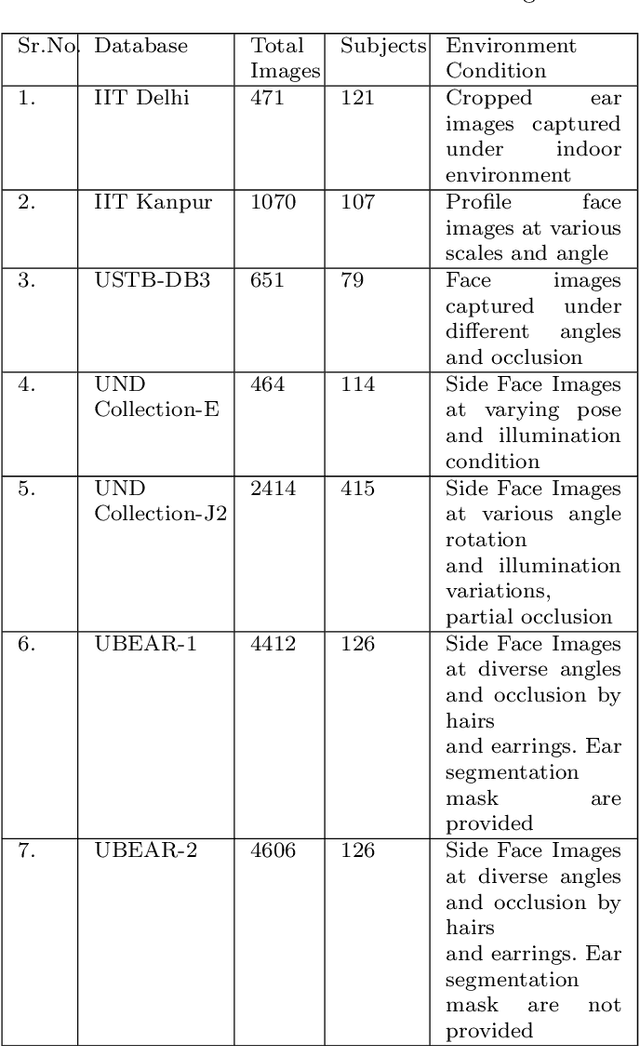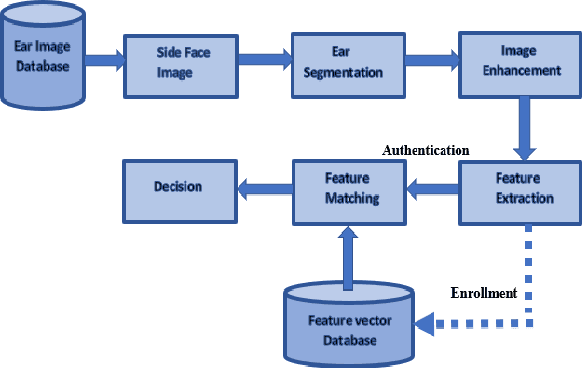Aman Kamboj
UESegNet: Context Aware Unconstrained ROI Segmentation Networks for Ear Biometric
Oct 08, 2020



Abstract:Biometric-based personal authentication systems have seen a strong demand mainly due to the increasing concern in various privacy and security applications. Although the use of each biometric trait is problem dependent, the human ear has been found to have enough discriminating characteristics to allow its use as a strong biometric measure. To locate an ear in a 2D side face image is a challenging task, numerous existing approaches have achieved significant performance, but the majority of studies are based on the constrained environment. However, ear biometrics possess a great level of difficulties in the unconstrained environment, where pose, scale, occlusion, illuminations, background clutter etc. varies to a great extent. To address the problem of ear localization in the wild, we have proposed two high-performance region of interest (ROI) segmentation models UESegNet-1 and UESegNet-2, which are fundamentally based on deep convolutional neural networks and primarily uses contextual information to localize ear in the unconstrained environment. Additionally, we have applied state-of-the-art deep learning models viz; FRCNN (Faster Region Proposal Network) and SSD (Single Shot MultiBox Detecor) for ear localization task. To test the model's generalization, they are evaluated on six different benchmark datasets viz; IITD, IITK, USTB-DB3, UND-E, UND-J2 and UBEAR, all of which contain challenging images. The performance of the models is compared on the basis of object detection performance measure parameters such as IOU (Intersection Over Union), Accuracy, Precision, Recall, and F1-Score. It has been observed that the proposed models UESegNet-1 and UESegNet-2 outperformed the FRCNN and SSD at higher values of IOUs i.e. an accuracy of 100\% is achieved at IOU 0.5 on majority of the databases.
 Add to Chrome
Add to Chrome Add to Firefox
Add to Firefox Add to Edge
Add to Edge